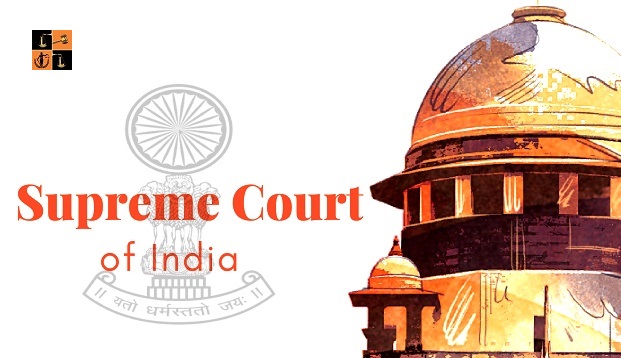The Supreme Court Bench Justice Ajay Rastogi and Justice Abhay S. Oka in the case titled The State of Madhya Pradesh & Ors. v. Somdutt Sharma dated 29-09-2021 has given their views on the issue of whether the irrigation department of the state is an Industrial Establishment under section 25 of the Industrial Dispute Act, 1947 or not.
The Supreme Court also held that overall activities and functions of the Irrigation Department will have to be considered while deciding the question whether it is carrying on manufacturing activities
Facts of the Case:
The respondent was initially appointed as a daily wage employee on the post of Helper in the Irrigation Department of the first appellant. His employment was terminated on 1st December 1995. On the directions of the Hon’ble the Chief Minister, the respondent was taken back in service on 11th August 2004. But his employment was again terminated by an Order dated 2nd July 2005. A dispute was raised by the respondent which was referred by the appropriate Government to the decision of the Labour Court. The Labour Court held that as compliance with section 25N of the ID Act was not made by the appellants, the respondent was entitled to reinstatement.
Submissions of the Appellants:
Mr. Mukul Singh, the learned Deputy Advocate General of the State of Madhya Pradesh has submitted that the Irrigation Department of the first appellant is not an Industrial Establishment within the meaning of Section 25L of the ID Act. He has also submitted that as the Irrigation Department of the first appellant is not an Industrial Establishment, Chapter VB will have no application. He urged that though the Irrigation Department may be having more than a hundred workers, it is not a factory within the meaning of clause (m) of section 2 of the Factories Act, 1948 (for short the “Factories Act”) as it is not carrying on the manufacturing process. He, therefore, submitted that as section 25N of the ID Act is a part of Chapter VB, it will not be applicable at all. He submitted that compliance with section 25F of the ID Act was made by the appellants as can be seen from Annexure P-1.
Submissions of the Respondents:
Mr. Prashant Shukla, the learned counsel appearing for the respondent firstly submitted that the Irrigation Department of the first appellant is also involved in the activity of pumping of water and sewage. Hence, it is carrying on the manufacturing process as defined under clause (k) of section 2 of the ID Act. He submitted that the Irrigation Department of the first appellant being an Industrial Establishment was under an obligation to comply with section 25N of the ID Act of obtaining permission from the appropriate Government.
Labour Court’s observation and Judgment:
The Labour Court held that as hundreds of employees are posted in Irrigation Department, provisions of Chapter VB will apply. However, the crucial question whether the Irrigation Department of the first appellant is a factory within the meaning of clause (k) of section 2 of the Factories Act, is not considered at all.
Single Bench High Court’s observation and Judgment:
The Single Bench affirmed the order of the Labour Court.
Division Bench of High Court’s observation and Judgment:
The Division Bench held that Irrigation Department is responsible for the creation and maintenance of irrigation mentioned that it also looks after the calamity management work. It is stated that as the Irrigation Department is pumping water and sewage, it potential through the construction of Water Resources Department. It is also will be governed by sub-clause (ii) of clause (k) of section 2 of the Factories Act.
Supreme Court’s Observation and Judgment:
After consideration of the submissions, the Supreme Court has held that the Irrigation Department, looks after the creation and maintenance of irrigation potential through construction of water resources projects. The Irrigation Department also deals with disaster management, calamity management, maintenance of flood control works, reservoir operations etc. None of these functions will attract the definition of Industrial Establishment. Even assuming that some of the employees may be doing the work of pumping of water, that is not sufficient to hold that Irrigation Department of the first appellant is carrying on manufacturing process. Overall activities and functions of the Irrigation Department will have to be considered while deciding the question whether it is carrying on manufacturing activities. Few employees of the Irrigation Department out of several may be incidentally operating pumps. But the test is what are the predominant functions and activities of the said Department. Even if the activity of operation of pumps is carried on by few employees, the Irrigation department does not carry on manufacturing process. As it is not carrying on manufacturing process, it is not a factory within the meaning of clause (m) of section 2 of the Factories Act. Therefore, the Irrigation Department of the first appellant will not be an Industrial Establishment within the meaning of Section 25L. Accordingly, Chapter VB will have no application in the present case.
The Supreme Court has observed that
The Labour Court as well the learned Single Judge and the learned Division Bench of the High Court have not adverted to the question whether the Irrigation Department of the first appellant is an Industrial Establishment within the meaning of Section 25L. There is no finding recorded that the Irrigation Department of the first appellant is doing manufacturing activity as provided in sub-clause (k) of Section 2 of the Factories Act.
With the said observations, the Supreme Court set aside the judgment and allowed the appeal.
Case Name: The State of Madhya Pradesh & Ors. v. Somdutt Sharma
Bench: Justice Ajay Rastogi and Justice Abhay S. Oka
Counsel: For Appellant: Mr. Mukul Singh, the Deputy Advocate General of the State of Madhya Pradesh
For Respondent: Advocate Mr. Prashant Shukla
Read Judgment
Share this Document :Picture Source :


























